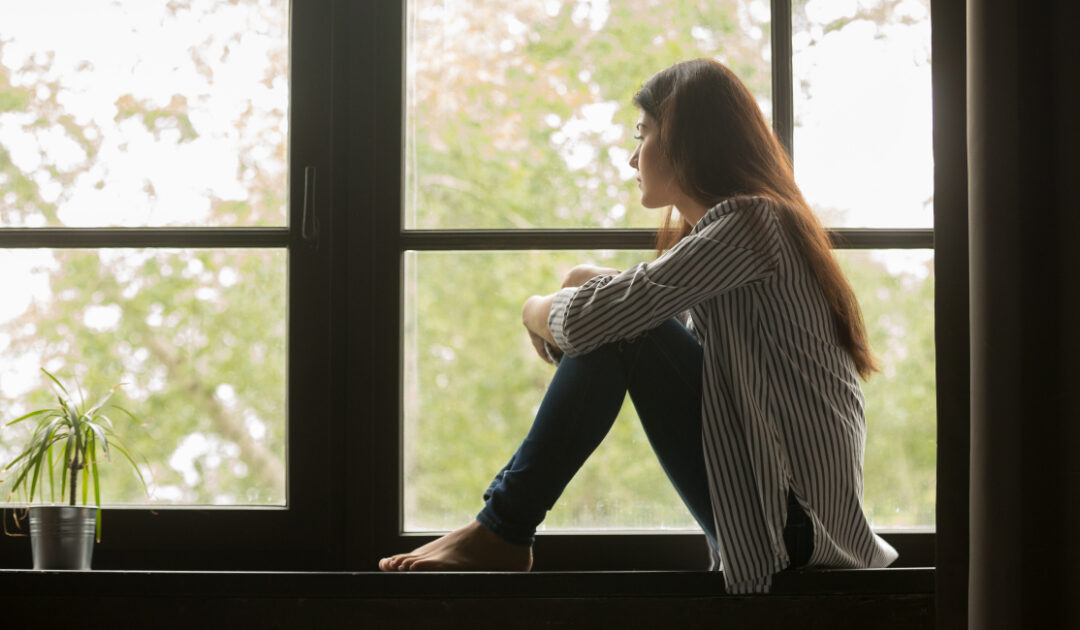Many of us are finding that we are reaching our limits with the mental, emotional, physical, spiritual, and financial impact of the COVID 19 pandemic. The burden of sheltering in place, physical distancing, homeschooling our children, working (or not being able to work) from home, being separated from loved ones, making continual adjustments to our expectations for how long/how hard/how limiting/how big this ongoing crisis is going to be has become overwhelming and scary.
Social media memes ping-pong from challenging us to learn a new language/instrument/skill to encouraging us to just be glad if we managed to feed ourselves, or anyone else depending on us, that day. We are bombarded with conflicting messages about when things will return to “normal” and are left wondering if we are entering a “new normal” – one that we don’t like very much.
How long will we have to wear masks and wait on designated red squares at the checkout line and be glared at as though we have leprosy when we pass someone in the grocery aisle and watch people cross the street to distance from us when we go walking in our neighborhood?
I heard an interesting message from author and speaker John Ortberg over the Easter holiday that focused on what he called “Three Day Stories.” He pointed out that the Bible is full of these: for example, Jonah spent 3 days in the belly of a whale and Jesus was crucified on Good Friday and resurrected on Easter Sunday (Click here to learn more about this topic.) but what caught my attention was his question: “What about Saturday?” If Friday is when the trouble starts (think: Jonah being swallowed by the whale, Jesus being nailed to the cross, the coronavirus spreading through the global population) and Sunday brings redemption (Jonah is delivered from the belly of the whale, Jesus rises from the dead, we develop a vaccine for COVID 19) what happens on “the day in between” Friday and Sunday?
We are currently in a very loooooooong Saturday. We are in that day in between when the trouble starts and when it gets resolved. We are in that state of limbo, treading water, stalled, downloading (that annoying little circle twirling round and round on your computer screen when you are waiting for whatever site you have tried to access to actually appear), completely stuck. The worst part is that we don’t know how long this “Saturday,” this waiting period, will actually last.
Any pregnant woman will tell you that every day past her due date feels like an eternity. We like guaranteed deadlines, delivery dates, and certainty. This pandemic has thrust us into the darkness and uncertainty of a Saturday of unknown length, and our brains and nervous systems do not like that one bit. Just like the child counting down the days until Christmas, WE DO NOT LIKE TO WAIT. Amazon Prime amazed and spoiled us with “same-day delivery” until it outdid itself with “Prime Now” which delivered your item within hours! We have become accustomed to instant gratification and quick results. Waiting is not something we are used to doing, and we are not very good at it. It makes us feel helpless, out of control, and powerless.
It is ok not to like where things are in our world right now. We don’t have to falsely try to cheer ourselves up, or “look on the bright side” or find the silver lining or deep meaning in all of this. It is ok to feel annoyed, angry, scared, sad, tired, discouraged, upset, and unhappy. Sometimes life is just hard, not because you are doing something wrong or there is something wrong with you, but because there is something wrong in our world.
Another one of our blogs on this subject: This Pandemic is Trauma for Us All
However, while you are being honest about your feelings, and accepting them without judgment or self-blame, also make room for those moments when the ordinary can bring you comfort: the smell of your morning coffee before you take that first sip, the sun peeking through the clouds after a storm, your dog’s wagging tail because you have time to walk him (again!).
When my mother talks about her experience in the concentration camp during WWII, she often mentions the “little things” that helped the time pass during the tedium of waiting for liberation: finding a piece of string to play cat’s cradle, or some tin foil to fold a boat to sail in a puddle after the rain, or a scrap of paper to write on (she managed to assemble enough of these to keep a diary of sorts). She remembers these discoveries as small treasures that distracted her from the enormity of losing her home and family and everything familiar about the life she knew before. “This too shall pass” was the sentiment of the day, and it did pass, as will our crisis.
Another one of our blogs with a little different spin on this idea: Is Life Great? This Too Shall Pass
I was reminded of this spark of hope when my Equine Professional, Monique, who works with me in my Equine Assisted Psychotherapy practice, found an abandoned, day-old kitten in some tall grass at the ranch where we conduct sessions.
This little scrap of fur was probably hours old and had little chance of surviving, but we took on the challenge of bottle-feeding it (she has generously taken on the night shift!) and a week later it is still very much alive. We named the kitten Hope, as she represents the truth that life truly does go on, no matter how dire the circumstances seem to be in the moment. Although lives and livelihoods will be lost in this tragedy, in our humanity a spark burns that will not be put out. We are resilient. We are wired to survive and thrive. We will overcome this challenge together. Saturday can’t last forever. This too shall pass. And we will still be standing, together, when it does. (Join with us for the Building Your Resilience series: multiple online opportunities for profound self-care)
Waiting with you for Saturday to pass, and finding Hope in the meantime.




Recent Comments